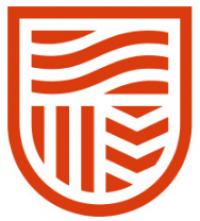Bachelor of Geospatial Science
Dive deep into data. Make it meaningful. Then get creative to solve some of the complex problems facing the environment and help to make people’s everyday lives a little easier. The Bachelor of Geospatial Science from Charles Sturt University equips you to pilot advanced technologies in order to harness the world of data – then use the intelligence to shape our world.
As a geospatial scientist you’ll study the relationships between physical locations, people, and earth processes. And you’ll develop the skills and understanding to make connections between people, places and processes.
Course highlights
The right skills
Begin the Bachelor of Geospatial Science with a solid foundation in geographic information science, remote sensing and cartography. Then build your own unique knowledge platform by specialising in information science, mathematics, ecology, geography, agriculture or emergency management.
Practical, relevant experience
Designed in consultation with experts to maximise industry relevance, this course gives you plenty of hands-on experience right from the start. You’ll be solving geospatial problems and diving into work placements from your first year of study.
A fresh approach
While many geospatial science undergraduate degrees concentrate on professional surveying practice, the Bachelor of Geospatial Science takes a fresh approach. This course offers you a unique opportunity to focus on geographic information systems (GIS) and remote sensing in a dedicated degree.
Campus Information
Albury-Wodonga, New South Wales
Albury-Wodonga is a vibrant regional centre situated on the border of NSW and Victoria. It is home to a great range of shops, theatre, cafés and restaurants, and just a stone's throw from snowfields and wine regions, providing excellent day trips when you need a break from study.
Intakes
- July
- March
Application Processing Time in Days: 20
Application Process
Minimum English Language Requirements
| English Level Description | IELTS (1.0 -9.0) | TOEFL IBT (0-120) | TOEFL CBT (0-300) | PTE (10-90) | |
|---|---|---|---|---|---|
| Expert | 9 | 120 | 297-300 | 86-90 | |
| Very Good | 8.5 | 115-119 | 280-293 | 83-86 | |
| Very Good | 8 | 110-114 | 270-280 | 79-83 | |
| Good | 7.5 | 102-109 | 253-267 | 73-79 | |
| Good | 7 | 94-101 | 240-253 | 65-73 | |
| Competent | 6.5 | 79-93 | 213-233 | 58-65 | |
| Competent | 6 | 60-78 | 170-210 | 50-58 | |
| Modest | 5.5 | 46-59 | 133-210 | 43-50 | |
| Modest | 5 | 35-45 | 107-133 | 36-43 | |
| Limited | 4 | 32-34 | 97-103 | 30-36 | |
| Extremely Limited | < 4 | < 31 | < 93 | < 30 |
Job Opportunity Potential
Geospatial science is a rapidly growing field whose graduates are in high demand around the globe. The career opportunities are excitingly diverse and span government and industry sectors.
Make a positive environmental impact
Contribute to a sustainable world through environmental and agricultural analysis and management (including water and land resource management) with local, state or federal government, for catchment management authorities or consultancies.
Plan for the future
Shape the future in business analysis and planning including urban planning, census analysis, resource planning and utilities management for government and the corporate sector.
Provide a human touch
Support communities through disaster and emergency management, or with the analysis of areas such as health and disease, crime patterns or human migration.
PSW Opportunity
Sydney / Melbourne / Brisbane:
Regular 2 years post study work visa for international students completing Bachelors and Masters degrees (minimum 92 weeks), 3 years for Masters by Research and 4 years for PhD. graduates
Other Locations (Regional centres and other regional areas):
International students studying at regional universities will be eligible to access an additional
2 years in Australia on a post-study work visa
(Which means a Bachelors or Masters graduate can get up to 4 years of PSW visa)
Admission Requirement / Eligibility Criteria
- A completed High School Certificate (or equivalent) with an ATAR of at least 70 (including adjustment factors).
AND - strong performance in mathematics and/or information technology/computing subjects (HSC or equivalent).
OR - Successful completion of at least two appropriate standard university-level subjects.
OR - Two years relevant professional work experience described in a detailed resume.
Prospective students will apply for admission to the course through the Universities Admissions Centre (UAC) or through direct application to CSU.
Admission to the course will be in accordance with the CSU Admissions Policy.
- Course Code: 0101015
- Course Type: Full Time
- Course Level: Bachelors/UG Degree
- Duration: 03 Year
-
Total Tuition Fee:
91200 AUD
Annual Cost of Living: 24505 AUD
Application Fee: N/A
Similar Programs
- Bachelor of Environmental Science and Management at Charles Sturt University (CSU)
- Bachelor of Exercise and Sport Science (with specialisation) at Charles Sturt University (CSU)
- Bachelor of Medical Radiation Science (with specialisations) at Charles Sturt University (CSU)
- Bachelor of Veterinary Biology / Bachelor of Veterinary Science at Charles Sturt University (CSU)
- Bachelor of Social Science (Psychology) at Charles Sturt University (CSU)
- Bachelor of Psychology at Charles Sturt University (CSU)

